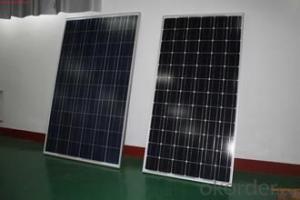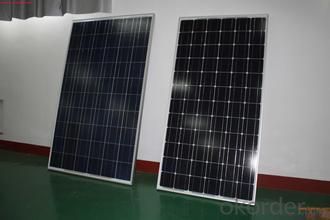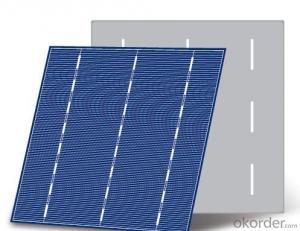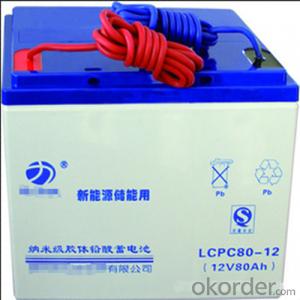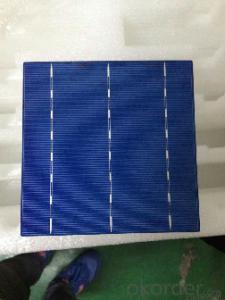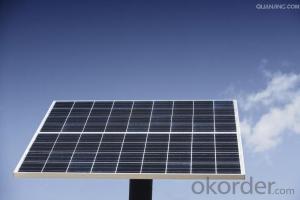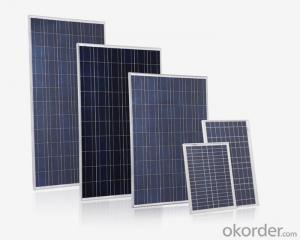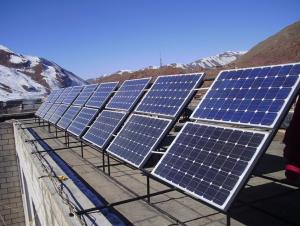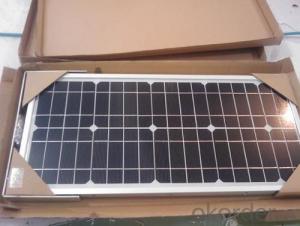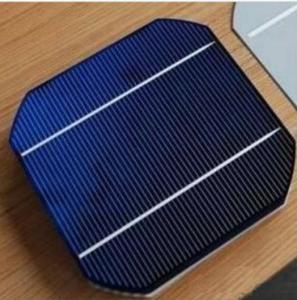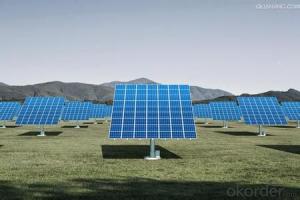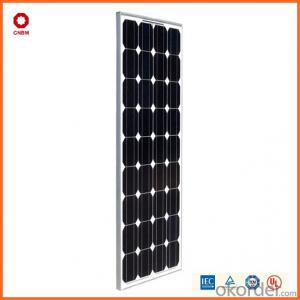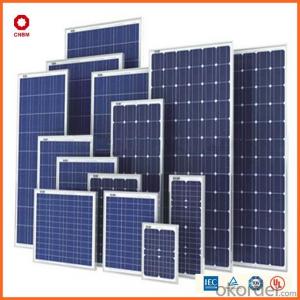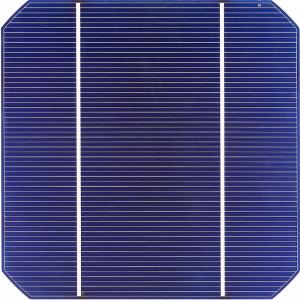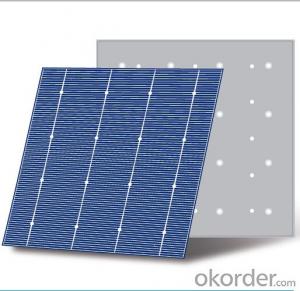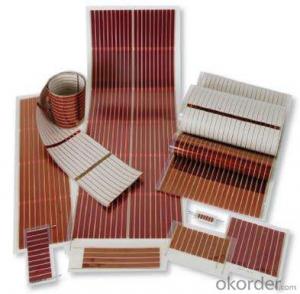Polymer Based Monocrystalline Silicon Solar Cell with CE,TUV,MCS,CEC,ROHS
- Loading Port:
- China Main Port
- Payment Terms:
- TT OR LC
- Min Order Qty:
- -
- Supply Capability:
- -
OKorder Service Pledge
Quality Product, Order Online Tracking, Timely Delivery
OKorder Financial Service
Credit Rating, Credit Services, Credit Purchasing
You Might Also Like
Quick Details
| Model Number: | |||||
| Material: | Size: | Number of Cells: | |||
| Max. Power: | Certificates: | Power Tolerance: | |||
| Frame Material: |
Packaging & Delivery
| Packaging Detail: | Inner box: 161x108x6cm 1pc/inner box Carton box: 163x110x32cm 5pcs/carton box 20FT: 240pcs 40FT: 485pcs |
| Delivery Detail: | 10days after confirm the order |
Specifications
1.Excellent in quality and reasonable in price
2.CE,TUV,MCS,CEC,RoHS
3. high efficiency
4.OEM & ODM
5.25year life time
220W monocrystalline silicon solar cell with CE,TUV,MCS,CEC,RoHS
Scification:
| Maximum Power | 220Wp |
| Power Tolerance | 1%~3% |
| Optimum operating voltage(Vmp) | 47.4V |
| Optimum operating current(Imp) | 4.64A |
| Open ciruit voltage(Voc) | 58.6V |
| Short circuit current(Isc) | 5.07A |
| Maximum system voltage | 1000V DC |
| Voltage temperature coefficient | -155±10mV/°C |
| Current temperature coefficient | +0.06±0.01%/°C |
| Power temperature coefficient | -0.5±0.05%/°C |
| Cell type | Monocrystalline solar cell |
| Dimension | 1596*1065*46mm |
| Weight | 21.5Kg |
| STC | 1000W/m2,AM 1.5,25ºC |
| Frame Material | Clear anodized aluminium frame |
| Operating temperature | -40°C~+85°C |
| Storage temperature | from-40°C~+85°C |
| Voltage standoff | AC200V DC3000V |
| Maximum wind resistance | 60m/s |
| Surface maximum load capacity | 200Kg/m2 |
| Maximum hail load capacity | 25mm,80km/h |
| Efficiency of cell | 16.5~17% |
| Warranty | 5 year warranty for products,25 years for 80% power |
- Q: Can solar cells be used in greenhouses or agricultural facilities?
- Yes, solar cells can be used in greenhouses or agricultural facilities. Solar panels can be installed on the roofs or walls of these structures to harness the sunlight and convert it into electricity. This renewable energy source can power various operations such as lighting, ventilation, irrigation systems, and even machinery, reducing reliance on fossil fuels and promoting sustainability in the agricultural sector. Additionally, solar cells can help offset energy costs and enhance the overall environmental friendliness of these facilities.
- Q: Can solar cells be used to power street lights?
- Yes, solar cells can be used to power street lights. Solar panels can convert sunlight into electricity, which can then be stored in batteries and used to power street lights during the night. This provides a sustainable and environmentally friendly solution for street lighting.
- Q: Are solar cells recyclable?
- Yes, solar cells are recyclable. The majority of their components, such as silicon, glass, and aluminum, can be recycled and reused to manufacture new solar panels. This helps reduce waste and minimize the environmental impact of solar cell disposal.
- Q: How long does it take to make a solar cell?
- If you decide to make it by yourself, it will take you very long.
- Q: Can solar cells be used in water pumps?
- Yes, solar cells can be used in water pumps. Solar-powered water pumps utilize solar panels to convert sunlight into electricity, which can power the pump. This enables the pumps to operate independently of grid electricity, making them ideal for remote areas or locations with limited access to electricity. Solar-powered water pumps are cost-effective, environmentally friendly, and can be used for various applications such as agriculture, irrigation, or supply of clean drinking water.
- Q: Can solar cells be used for large-scale power generation?
- Yes, solar cells can be used for large-scale power generation. By installing a large number of solar panels in solar farms or on rooftops, they can generate significant amounts of electricity. With advancements in technology and decreasing costs, solar power is becoming an increasingly viable option for large-scale power generation.
- Q: Can solar cells be used to power agricultural irrigation systems?
- Yes, solar cells can indeed be used to power agricultural irrigation systems. Solar power provides a sustainable and reliable source of energy to pump water for irrigation, helping farmers reduce their dependence on fossil fuels and electricity grids. This approach is particularly beneficial in remote areas with limited access to conventional power sources.
- Q: Can solar cells be used in public transportation?
- Yes, solar cells can be used in public transportation. They can be integrated into various parts of vehicles, such as the roof or windows, to generate electricity and reduce the reliance on fossil fuels. This not only helps to reduce emissions and combat climate change but also provides a sustainable and cost-effective solution for powering public transportation.
- Q: What is the impact of snow accumulation on solar cell performance?
- Snow accumulation on solar cells can have a negative impact on their performance. The presence of snow on the surface of solar panels can block sunlight from reaching the cells, reducing their ability to generate electricity. Additionally, snow can create a barrier that prevents proper heat dissipation, which can lead to overheating and potential damage to the cells. Regular snow removal or tilt angles that facilitate snow shedding can help mitigate these effects and ensure optimal solar cell performance.
- Q: Can solar cells be used in parking lots?
- Yes, solar cells can be used in parking lots. They can be installed on canopies or shade structures above parking spaces, or integrated into the ground as solar parking lot tiles. This allows parking lots to generate clean and renewable energy while providing shade for vehicles.
Send your message to us
Polymer Based Monocrystalline Silicon Solar Cell with CE,TUV,MCS,CEC,ROHS
- Loading Port:
- China Main Port
- Payment Terms:
- TT OR LC
- Min Order Qty:
- -
- Supply Capability:
- -
OKorder Service Pledge
Quality Product, Order Online Tracking, Timely Delivery
OKorder Financial Service
Credit Rating, Credit Services, Credit Purchasing
Similar products
Hot products
Hot Searches
Related keywords
